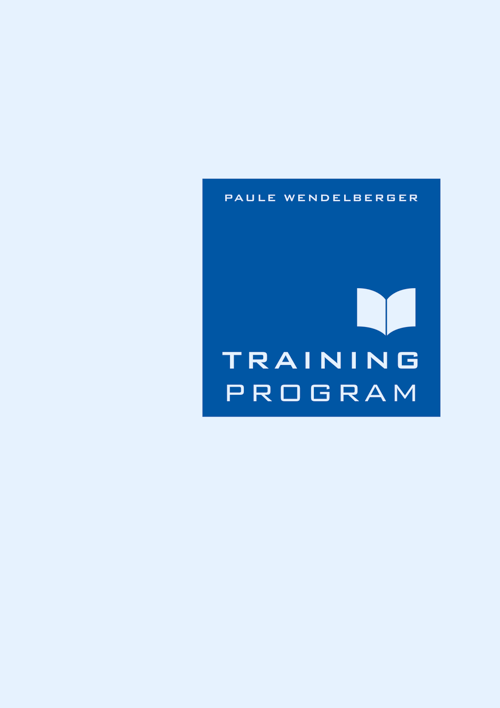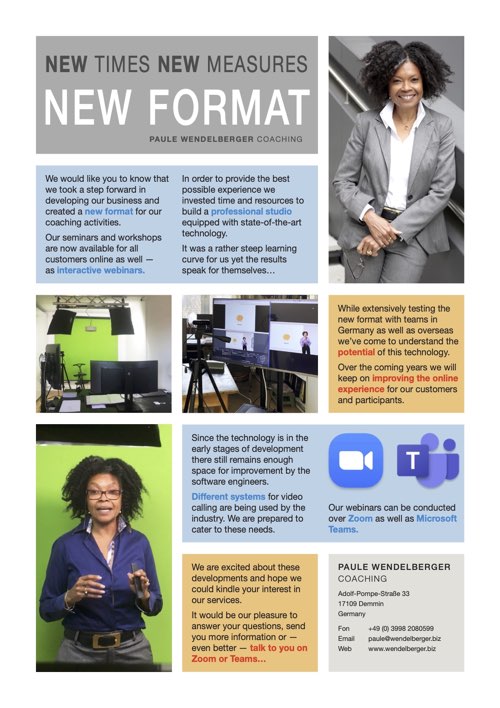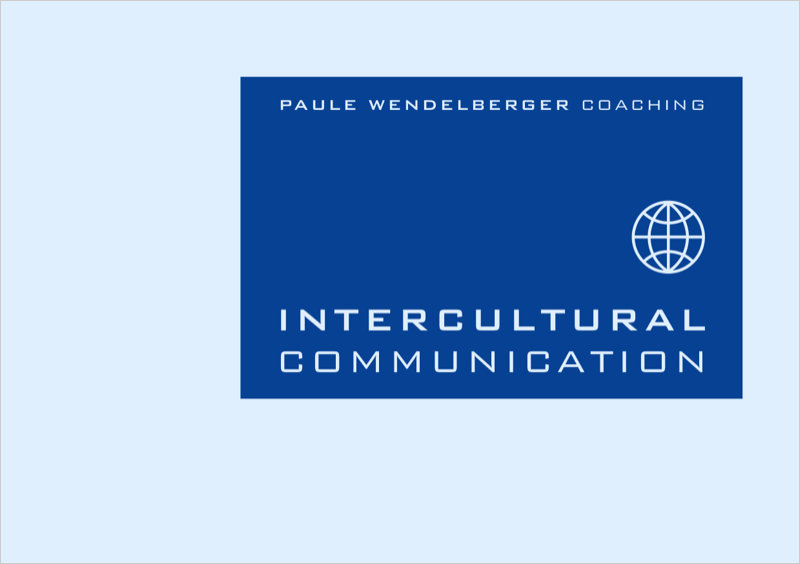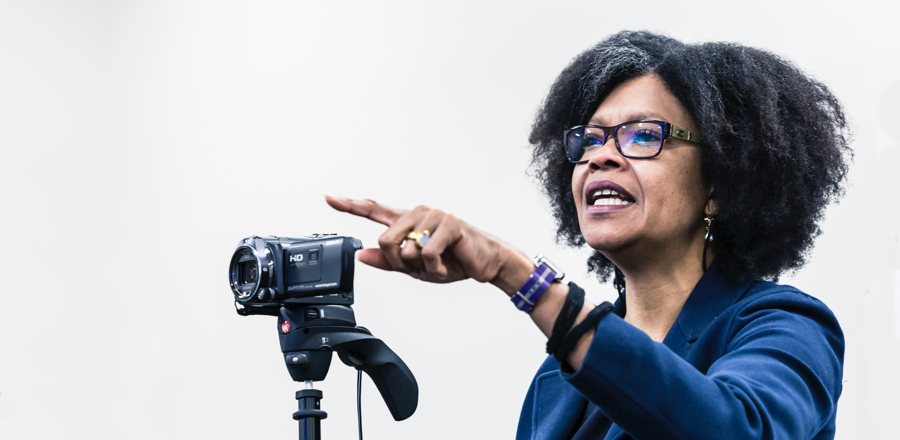
Trainings
Presenting in the media age
Facts
Length of seminar: 2 – 3 days
Number of participants: 8 – 12
Language: English / German
Accompanying material: Handbook (optional)
Requirement: Knowledge of PowerPoint
Number of participants: 8 – 12
Language: English / German
Accompanying material: Handbook (optional)
Requirement: Knowledge of PowerPoint
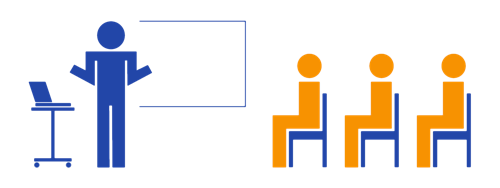
Content
Participants learn how to build and maintain a strong connection to their audience, and discover why this must be their main focus during a presentation. Content includes preparation methods, the creation of visual / multimedia tools and successful “stage presence”.
One of the most important topics of the seminar: how to strengthen credibility through conviction, enthusiasm and logical structure. Effective methods for structuring and preparing media content for specific audiences will be shown. The creation of interesting visual aids as well as the visualization of complex information in simple, logical steps based on the SPRITE method (sequential presenting of illustrations and text elements) will be covered.
One of the most important topics of the seminar: how to strengthen credibility through conviction, enthusiasm and logical structure. Effective methods for structuring and preparing media content for specific audiences will be shown. The creation of interesting visual aids as well as the visualization of complex information in simple, logical steps based on the SPRITE method (sequential presenting of illustrations and text elements) will be covered.
Using real-life examples, a variety of visual aids and presentation techniques will be presented and discussed, so that participants gain insights and can apply these ideas to their own presentations. Each will create and hold a presentation, which will be filmed and then examined. After evaluation, the presentations will be re-worked, held once again at the end of the seminar, and then re-evaluated. This makes progress directly tangible and paves the way for participants to work further on their own unique presentation style.
Topics
The Gondola Principle — boarding, navigating, landing
Establish and maintain a connection to the audience
Logical structure — inductive and deductive argumentation
Psychological basics — multimedia learning
Basics of visual communication
Design — visualization of complex content
Establish and maintain a connection to the audience
Logical structure — inductive and deductive argumentation
Psychological basics — multimedia learning
Basics of visual communication
Design — visualization of complex content
Dealing with “borrowed” material
Reading and understanding body language
The right amount of information for the right moment
Presentation targeted to the listener
Various presentation styles
Presenting online
Reading and understanding body language
The right amount of information for the right moment
Presentation targeted to the listener
Various presentation styles
Presenting online
Intercultural communication
Facts
Length of seminar: 2 – 3 days
Number of participants: 8 – 12
Language: English / German
Accompanying material: Handbook (optional)
Equipment: Flip charts, pin walls
Number of participants: 8 – 12
Language: English / German
Accompanying material: Handbook (optional)
Equipment: Flip charts, pin walls
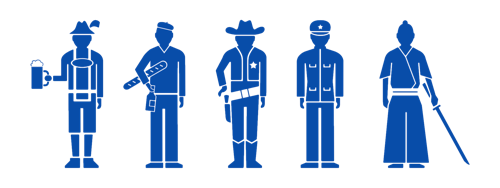
Content
The Intercultural Communication seminar is aimed at participants who work with foreign colleagues and business partners. A study on the failure of international joint ventures concluded that only 30% of failed projects were due to problems involving planning, technology, finance or the like. Around 70% of the problems were due to the behavior of managers, who had difficulties coping with new cultures.
This seminar therefore aims to identify cultural differences and provide guidance to mediate concrete situations. Content includes learning how to recognize different types of cultures and their specific characteristics.
This seminar therefore aims to identify cultural differences and provide guidance to mediate concrete situations. Content includes learning how to recognize different types of cultures and their specific characteristics.
The workshop prepares participants for encounters with people from other cultures and so that they can appropriately orient themselves in concrete situations.
Participants are taught how culture directly influences business life and management. On the way to intercultural competence, they learn to better understand their own culture and recognize the cultural differences of their business and negotiating partners.
Participants are taught how culture directly influences business life and management. On the way to intercultural competence, they learn to better understand their own culture and recognize the cultural differences of their business and negotiating partners.
Topics
Why intercultural training?
What is the true meaning of culture?
What distinguishes intercultural communication from “normal” workplace communication?
Individual and group cultures
Need for security and the willingness to take risks
Time-factor — short and long-term planning
What is the true meaning of culture?
What distinguishes intercultural communication from “normal” workplace communication?
Individual and group cultures
Need for security and the willingness to take risks
Time-factor — short and long-term planning
Perception — fundamentals of communication
Why cultures have difficulties with others
Emotional and neutral societies
“Culture shock” and adaptation cycle
Is there a “best way”?
The cross-culturally competent personality
Why cultures have difficulties with others
Emotional and neutral societies
“Culture shock” and adaptation cycle
Is there a “best way”?
The cross-culturally competent personality
Training the trainer (Holding successful workshops)
Facts
Length of seminar: 2 – 3 days
Number of participants: 8 – 12
Language: English / German
Accompanying material: Handbook (optional)
Requirement: Presentation proficiency
Number of participants: 8 – 12
Language: English / German
Accompanying material: Handbook (optional)
Requirement: Presentation proficiency
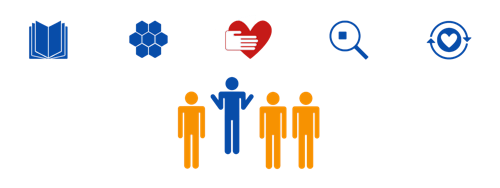
Content
The goal of the seminar is to prepare participants to conduct their own workshops. It was developed as an answer to inquiries from corporate clients and is based on the experience collected through our own seminar activities. The presented methods have been successfully proven in practice. They can be easily learned and universally applied.
There are two types of workshops. The first is tailored toward information and concepts. The second focuses on solving problems and generating ideas using creativity techniques. Discussion involves the preparation and organization of a workshop, as well as how the needs of the participants can be addressed.
There are two types of workshops. The first is tailored toward information and concepts. The second focuses on solving problems and generating ideas using creativity techniques. Discussion involves the preparation and organization of a workshop, as well as how the needs of the participants can be addressed.
It also touches on topics such as how to use questions as a method of control and how to handle disruptive behavior. These are subjects that every workshop leader will encounter.
Through practical exercises a typical workshop situation will be simulated and the behavior of participants evaluated. In addition, various creativity techniques will be introduced and problem-solving exercises utilized.
Through practical exercises a typical workshop situation will be simulated and the behavior of participants evaluated. In addition, various creativity techniques will be introduced and problem-solving exercises utilized.
Topics
Workshops — communicate information and generate ideas
How do adults learn?
The importance of visuals
Time management
Preparing a workshop
BONUS — the path to credibility
Interactivity
How do adults learn?
The importance of visuals
Time management
Preparing a workshop
BONUS — the path to credibility
Interactivity
Questions — what types are there and how are they optimally used?
Group dynamics
The “usual suspects” — dealing with disruptive behavior
Controlling difficult situations
Problem-solving workshops
Effective creativity techniques
Group dynamics
The “usual suspects” — dealing with disruptive behavior
Controlling difficult situations
Problem-solving workshops
Effective creativity techniques
Detailed information about these and more seminars you find in our training program.
